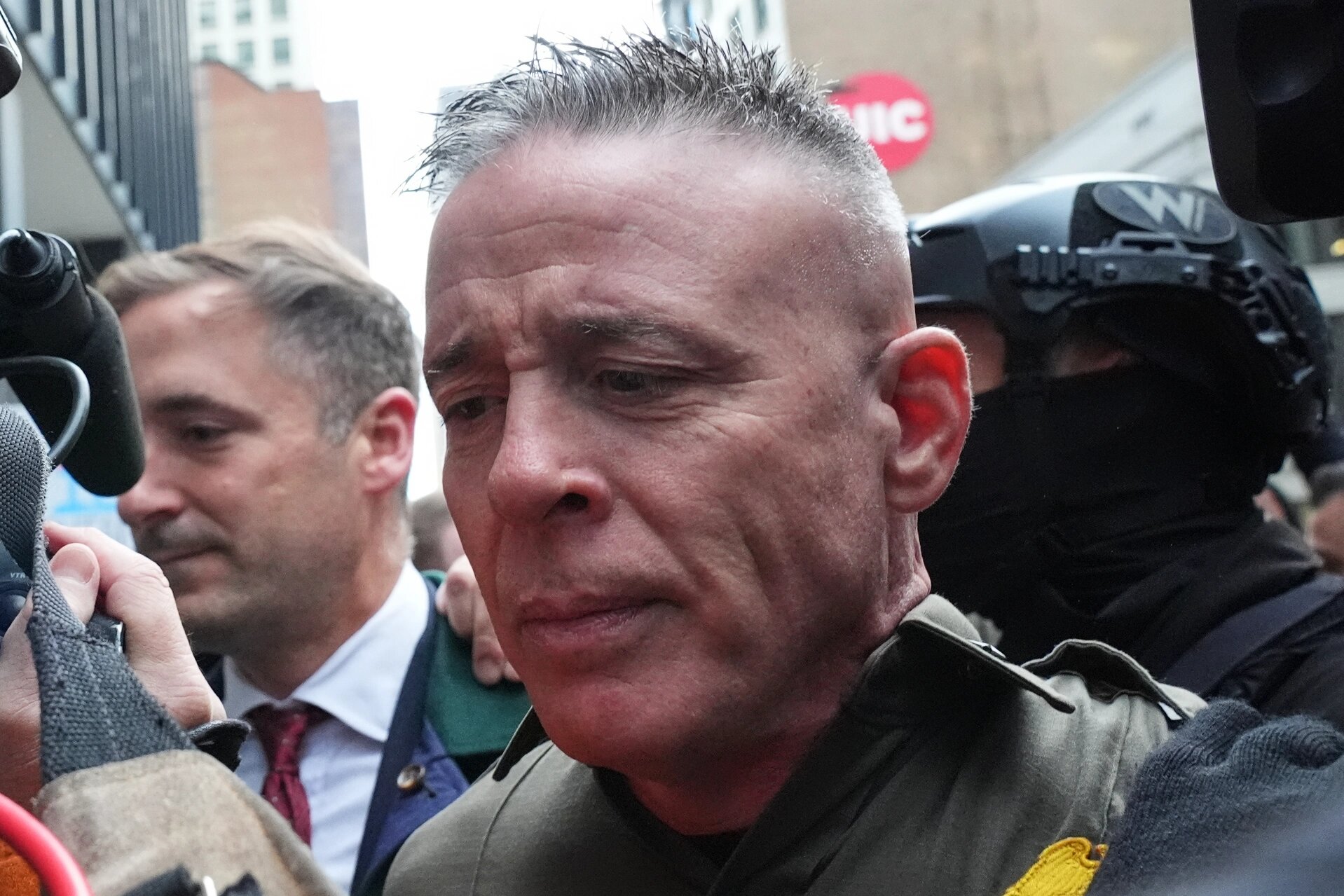In a tense hearing, Gregory Bovino faced scrutiny for alleged violations of court orders limiting use of force.

CHICAGO — U.S. Border Patrol chief Gregory Bovino, the face of “Operation Midway Blitz” cracking down on illegal immigration, must report daily to a federal judge after reports of combative enforcement, including using tear gas.
Bovino appeared Tuesday for a tense hearing before U.S. District Judge Sara Ellis at the Dirksen Federal Courthouse in downtown Chicago. She questioned him about reports of aggressive immigration enforcement and the federal agents’ treatment of protesters, journalists and even children during the ongoing “immigration blitz.”
The hearing was part of an ongoing lawsuit brought by local media organizations alleging that federal agents have violated prior court orders restricting their use of force. Those orders forbid agents from using tear gas or “riot control” weapons without giving two warnings and from deploying them against people who pose no immediate threat.
“They don’t have to like what you’re doing. And that’s OK. That’s what democracy is,” Ellis said during the hearing, referring to protesters or others who might be voicing opposition to federal agents on the ground. “They can say they don’t like what you’re doing, that they don’t like how you’re enforcing the laws, that they wish you would leave Chicago and take the agents with you. They can say that, and that’s fine. But they can’t get teargassed for it.”
While Bovino’s immigration enforcement efforts came under scrutiny Tuesday, President Donald Trump threatened to send “more than the National Guard” to combat crime in blue cities like Chicago. Some National Guard members have already been sent to Illinois, though they have yet to be deployed to the streets. The president has also sent the National Guard into Washington and is seeking to send troops to Portland, Oregon.
In Chicago, the judge, an Obama appointee, imposed a new requirement: Bovino must meet with her every weekday to update her on the immigration enforcement efforts. “Mr. Bovino’s going to be here every day at 6 to tell me what happened,” she said.
From the outset of the hourlong hearing, Ellis made clear her expectations. “My role is not to tell you that you can or cannot enforce validly passed laws by Congress,” she said. “My role is simply to see that any enforcement of those laws is done in a manner that is consistent with your obligations under the law.”
The judge reminded Bovino of rules that state he must “leave journalists alone. If they’re doing their job, they need to be left alone to do their job.”
Bovino agreed. “We’re on the same page,” he said.
Bovino listened intently while on the stand, and at least once took time to gaze across the courtroom, which was crowded with reporters and a few onlookers.
Outside the courthouse, a few protesters waved signs reading “Stop ICE Brutality” and “Judge Sara Ellis is a Boss.”
Inside, the tone was serious as Ellis read anecdotes aloud from reports that federal agents had used tear gas in Chicago neighborhoods during Halloween festivities. “Kids were tear gassed on their way to celebrate Halloween,” the judge said, referring to an incident in the Old Irving Park neighborhood on Chicago’s North Side. “Those kids were dressed up in their Halloween costumes. You can imagine, their sense of safety was shattered.”
Halloween was on the judge’s mind as she told government attorneys: “I do not want to get violation reports from the plaintiffs that show that agents are out and about on Halloween where kids are present and tear gas is being deployed.”
For his part, Bovino responded throughout the informational hearing with “yes ma’am,” and challenged only when asked about tear gas being used. “Your honor, I believe that each situation is dependent on the situation. I’d like to know more about what happened.”
Attorneys for the plaintiffs moved to ban tear gas altogether, but Ellis said for now she would not decide. “If [federal agents] are using tear gas, they better be able to back it up,” she said. “And if they can’t, then they will lose that as something they can use.”
Ellis raised concerns from the public that federal agents haven’t identified themselves. “I instructed all agents under my command to place an identifier conspicuously somewhere on their uniform,” Bovino replied. Ellis suggested IDs appear “in a conspicuous location” in at least two places, and Bovino agreed.
Ellis demanded that Bovino deliver use-of-force reports and body-worn camera footage compiled since Sept. 2.
And she ordered him to wear a camera himself. “The camera is your friend,” the judge said.
Bovino had acknowledged that he hadn’t been wearing one. “How about by Friday you get one for yourself?” Ellis asked. Bovino agreed, saying, “We can get that.”
